2025 PMTA Conference Sessions
Click the plus button to open and close the sessions and read more
Lois Svard: Are Music Lessons a Fountain of Youth? (FEATURED SESSION)
Are Music Lessons a Fountain of Youth? (FEATURED SESSION)
By Lois Svard, winner of 2024 ASCAP Foundation Deems Taylor/Virgil Thomson book award
The cognitive benefits of music lessons for children are well documented. Now a recent study shows that older adults who take piano lessons for the first time show significant brain changes in the areas of working memory and cognitive reserve after just a year of lessons, essentially delaying the aging process and contributing to healthy aging.

Joseph Arnhold: Soulforce Mastery in Musical Collaboration: Beyond Technique to Connection and Flow
Discover how to redefine mastery in solo or ensemble playing to include technique, effortlessness, and authentic expression. Based on insights from the award-winning book Soulforce, this interactive session offers practical tools and musical explorations to foster vibrant collaboration, joy, and authentic artistry in your ensembles.
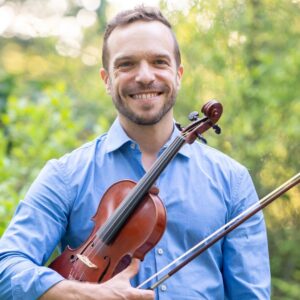
Justin Badgerow: Brazilian Pedagogical Miniatures: Etudes of Cacilda Borges Barbosa
This lecture-performance will feature a discussion and performance of the colorful and rhythmic solo piano music of female Brazilian composer Cacilda Borges Barbosa (1914-2010). The program will feature several brief “Etudes” from her four pedagogical volumes titled Diorama, and conclude with two Etudes from Estudos Brasileiros.

Ian Duh: Beyond the Metronome with Tempo Maps
A tempo map is a powerful tool that expands the capabilities of a metronome. Programming and using one has potential benefits such as demystifying tempo changes, providing an entry point to collaborative works, and more. This session includes a live demonstration; participants are invited to follow along with laptops.
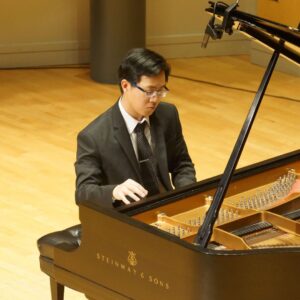
Jonathan Flowers: Engaging Students Through Flipped Instruction
What happens when students need additional time to grasp new concepts during lessons? Flipped instruction occurs when teachers provide resources that present concepts between lessons. These resources free up more lesson time for interactive learning and coaching. This presentation offers practical suggestions for implementing flipped instruction in your studio.
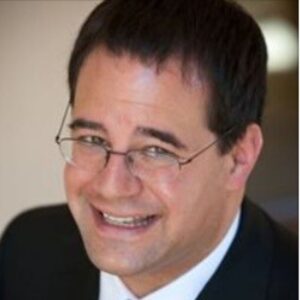
Jonathan Flowers: Just Breathe! Building A Base For Collaboration
We need to find harmony within ourselves to build collaborative pathways with others. This session offers a “brain break” from the excitement of the conference. Through mindful movement and breathing, attendees can bring their minds, bodies, and spirits into collaborative harmony. Participants will also receive a bibliography of mindfulness resources.
Annie Huang: Clara Schumann’s Piano Trio Op. 17
This session explores Clara Schumann’s Piano Trio Op. 17, examining its structure, thematic development, and innovations within the Romantic music tradition. It contextualizes the trio within Clara’s life, her dual roles as composer and pianist, and the socio-cultural challenges she faced, highlighting its enduring artistic significance.

Lucy Mauro and Alton Wong: Classical and Jazz Pianists: Learning from Each Other
This teacher and student collaborative presentation explores ways in which classical and jazz piano study can inform each other. Participants will gain a deeper understanding of the similarities and differences of these two styles and develop a repertoire of brief exercises and techniques that can be easily integrated into lessons.
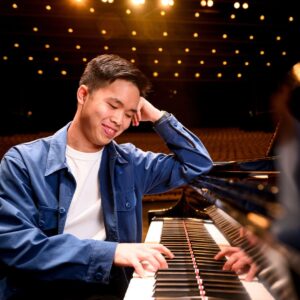

Christopher Prestia: Helping Our Students Practice More Effectively
Practicing is the backbone of our work as musicians, and it is also the biggest barrier our students face in their musical development. In this session we will give context and meaning to common practice advice, as well as survey the best techniques for increasing awareness, diagnosing issues, adjusting habits, and increasing proficiency at all stages of learning.
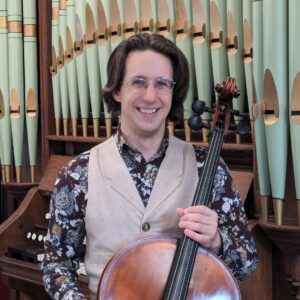
Kelly Scott and Rebecca Pieper: From One-on-One to Everyone: Building Collaborative Pathways in Music Through Scalable Online Teaching
Explore how music educators can leverage technology and online platforms to create scalable income streams, reduce burnout, and connect with students and colleagues worldwide. This session provides actionable strategies for building digital offerings and fostering collaboration, enabling educators to inspire beyond traditional teaching models while preserving their passion for music education.


Jocelyn Swigger: Agnes Tyrrell Concert Etudes Op. 48 (and Easier Teaching Pieces, Too
Agnes Tyrrell wrote brilliant piano pieces (Liszt was a fan), and now technology is making it possible to discover her music. Hear previews of Tyrrell’s etudes and other teaching gems, see images of her manuscripts and world, and get links to now-available scores for you and your students!
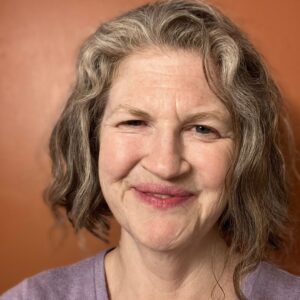
Virginia Thorpe: Studio Parties and Group Music Classes: Building Community and Boosting Engagement
Discover the benefits of studio parties and group music classes for private music studios! This session explores how these events foster community, boost engagement, and enhance learning. Gain practical ideas for themed parties, skill-building activities, and inclusive games that inspire students of all ages and abilities to thrive musically and socially.
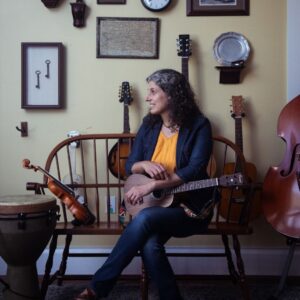
Wenyi Xiong: An Exploration of the Piano Music of Toru Takemitsu
This session will focus on several piano compositions by Toru Takemitsu: Rain Tree Sketch (1982), Rain Tree Sketch II (1992), Piano Distance (1961), Litany: In Memory of Michael Vyner (1989), and Romance (1948–1949). The purpose of this session is to explore the history of the works, provide musical analyses of them, and to discuss the manner in which the works demonstrate a bridge between Western and Eastern musics.

Seulki Yoo: Interdisciplinary Psychology, Neurology, and Musicology in the 19th Century: From Tonvorstellung (Tone Representation) to Musikvorstellung (Music Representation)
This presentation explores Richard Wallaschek’s (1860–1917) pioneering contributions to 19th-century musicology, psychology, and neurology, including his concepts of Musikvorstellung and Tonvorstellung. Drawing on the work of Carl Stumpf and Hermann von Helmholtz, Wallaschek synthesized these fields, laying the groundwork for modern music cognition through innovative perspectives on music representation and perception.
